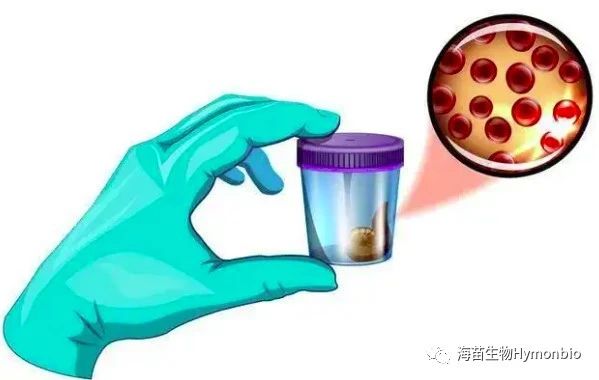The World Health Organization’s International Agency for Research on Cancer (IARC) released the latest global cancer burden data in 2020, showing there were 19.3 million diagnosed and nearly 10 million deaths worldwide; 1 in 5 people will develop cancer in their lifetime. It is estimated that by 2040, there will be 28.4 million new cases of cancer worldwide. Among them, the incidence and mortality of colorectal cancer have increased significantly, and the health threat caused by it has become increasingly serious. Incidence of colorectal cancer is second only to lung cancer in China, with 550,000 new cases and mortality of over 280,000 annually.
More than 80% of colorectal cancers originate from malignant changes of intestinal polyps. This takes about 10 years, from the occurrence of intestinal polyps to the final transformation into cancer. If it is detected early, such as during the polyp stage, and polyps are removed, cancer can be prevented.
The average 5-year survival rate for colorectal cancer is 64%; if treated during the earlier stages, it can be as high as 90%. 5-year survival rate after metastasis to surrounding tissues or organs and/or regional lymph nodes reaches 70%; if colorectal cancer has undergone distant metastasis, 5-year survival rate drops to 10% and 14%. Therefore, the key to preventing colorectal cancer is early detection, early diagnosis, and early intervention.
Colonoscopy is a routine and highly sensitive screening method in clinical practice. However, it also has several disadvantages, including : prior to examination, it is necessary to drink laxative and undergo strict intestinal preparation, posing physical risks during preparations; there is a degree of discomfort during colonoscopy; painless colonoscopy has potential complications arising from the use of anesthesia; and the risk of perforation and bleeding.
Are there other ways to detect early colorectal cancer? Yes. These tests can help:
Fecal Occult Blood Test (FOBT)
By testing whether there is blood in the stool, if the test comes up positive it indicates there is bleeding in the gastrointestinal tract, and further colonoscopy is required to determine the location and cause of bleeding.
However, FOBT might not be done, and the accuracy rate is not high because colorectal cancer does not always bleed, especially during the early stages. Likewise, laboratory stool tests do not always find abnormalities.
Gene Testing
During the development of cancer, there will be genetic mutations and changes. Colorectal cancer can be diagnosed early by detecting cell-free DNA in the blood. Diagnosis and treatment can be moved forward through corresponding screening methods, effectively reducing morbidity and mortality from colorectal cancer. Since colonoscopy has limited resources, using gene testing, patients can be screened and enriched to find the high-risk population and determine whether they should undergo colonoscopy, allocating medical resources more effectively.
HymonBio uses unique, high-efficiency Magnetic Bead Extraction Technology and patented Molecular Lock Amplification Technology to greatly improve sensitivity and specificity of blood testing. By using blood samples, testing becomes convenient and solves the public’s fear of colonoscopy and time constraints, improving screening compliance for colorectal cancer.
Post time: Dec-01-2022




